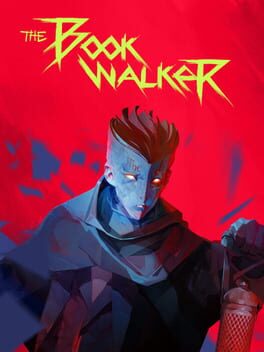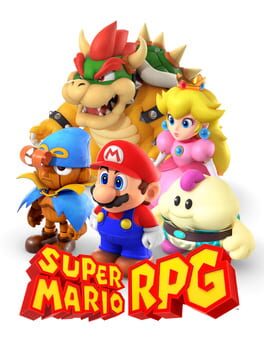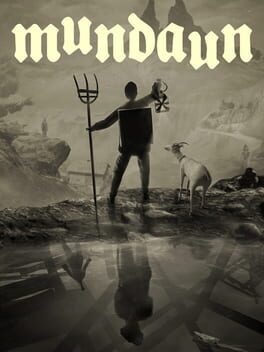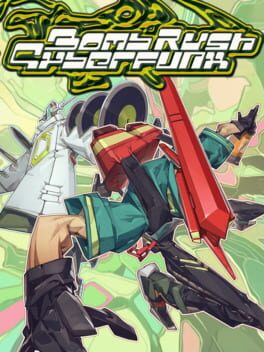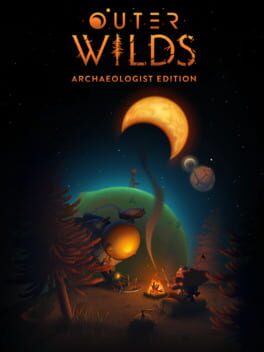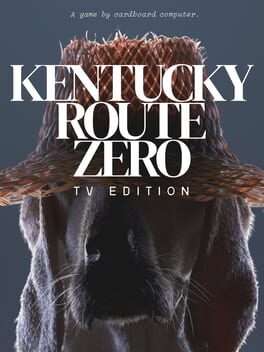binz
2019
This review contains spoilers
My Disco Elysium was, like I think it is for many people, about trauma and how we wield it against ourselves and others. I've been abusive in relationships. I've been an alcoholic. I've been codependent, which was as addictive as alcohol and did at least as much damage. I've never drunk myself into amnesia, but I know how it feels to suddenly not know myself.
This game doesn't give a solution to the horror of your trauma. It doesn't say we'll all get through together, or that everyone will be healthy and happy if we work hard to be. And that's its most beautiful and impressive accomplishment, I think: it just reminds you you can choose. Some choices will make you kinder. Some choices will make people leave you. Sometimes the best choice you have is to just stay alive, even though you hate yourself and everything you've ever done, because if you can keep choosing, maybe someday you'll have the choice to not hate yourself.
Don't get me wrong: I love a story about how people can come together to build the loving systems we need, and care for each other in a world to which we are purely incidental. I think that's often true, and you can accomplish it sometimes in this game. But the constant truth is, we can't force those things to happen. Our efforts will, sometimes, fail. Then we choose what we do after we fail. Until an incomprehensible and unstoppable cosmic force destroys reality as we know it, we can choose. And Disco Elysium gets how incredible and terrible that is better than any other story I've encountered.
This game doesn't give a solution to the horror of your trauma. It doesn't say we'll all get through together, or that everyone will be healthy and happy if we work hard to be. And that's its most beautiful and impressive accomplishment, I think: it just reminds you you can choose. Some choices will make you kinder. Some choices will make people leave you. Sometimes the best choice you have is to just stay alive, even though you hate yourself and everything you've ever done, because if you can keep choosing, maybe someday you'll have the choice to not hate yourself.
Don't get me wrong: I love a story about how people can come together to build the loving systems we need, and care for each other in a world to which we are purely incidental. I think that's often true, and you can accomplish it sometimes in this game. But the constant truth is, we can't force those things to happen. Our efforts will, sometimes, fail. Then we choose what we do after we fail. Until an incomprehensible and unstoppable cosmic force destroys reality as we know it, we can choose. And Disco Elysium gets how incredible and terrible that is better than any other story I've encountered.
This game was a surprisingly timely lesson for me about making art. I regularly get hooked on my own ideas but disappoint myself with the execution. I don't iterate enough, I don't push away from my first thought, I don't kill my darlings.
I love the concept of this game. And while the first few missions were clumsy at best and boring at worst, there was just enough that I thought could become compelling that I didn't want to give up. They have a novel (no pun intended) hook with their main character, and the internal and external worlds he inhabits. But we waste time on mechanics that feel bad and interactions that do nothing but tell you where to click next. You only get to the fireworks factory halfway through the second act, and the game ushers you back out before you can buy anything. I don't really care, or care to guess, what decisions led to that. I don't know why they didn't push further or cut chaff. It was just sad that a spark of inventiveness and expression existed, but wasn't fed.
I finished the game and wondered, what did they want to say other than "we like this idea"? What about autonomy and oppression? What about the power of creation? Not that all art has to be Mariana-Trench-deep along every axis that one can judge art - but I want the art I consume to say something more than "I just think it's neat." I want to say more than that with the art I make.
I love the concept of this game. And while the first few missions were clumsy at best and boring at worst, there was just enough that I thought could become compelling that I didn't want to give up. They have a novel (no pun intended) hook with their main character, and the internal and external worlds he inhabits. But we waste time on mechanics that feel bad and interactions that do nothing but tell you where to click next. You only get to the fireworks factory halfway through the second act, and the game ushers you back out before you can buy anything. I don't really care, or care to guess, what decisions led to that. I don't know why they didn't push further or cut chaff. It was just sad that a spark of inventiveness and expression existed, but wasn't fed.
I finished the game and wondered, what did they want to say other than "we like this idea"? What about autonomy and oppression? What about the power of creation? Not that all art has to be Mariana-Trench-deep along every axis that one can judge art - but I want the art I consume to say something more than "I just think it's neat." I want to say more than that with the art I make.
2023
What was pure wonder as a kid feels like a theme park as an adult - fun around every corner, but shallow and requires you not ask why things happen when and how they do. Still a delight, though; I never thought I'd get to play it again and I'm so glad I did. Despite the luster coming off, I can't truly drag the game that taught me to love glass cannons. And the boss fight theme is a fucking bop.
2021
2022
2023
This review contains spoilers
Nothing hits like the moments you're alone and following the sound of someone's music through an alien and empty world. They're out there. You can find them. You're not actually alone.
What incredible art that can make you say, "Yes, my life is impossibly small and inconsequential, but I need to get up every day and keep going because there's just so much to experience."
What incredible art that can make you say, "Yes, my life is impossibly small and inconsequential, but I need to get up every day and keep going because there's just so much to experience."
This review contains spoilers
I'll always remember when Conway leaves with the boys from the distillery. My initial reaction surprised me: I had an indignant feeling that "my Conway wouldn't do that." And then, duh. He's not my Conway. That's the point, beyond the fact that this is a story that someone else has written; the systems that drive our lives take people, take choices, take ourselves away from us if we let them. I am not stronger than those forces, the game was telling me. It was stunning. It hurt.
But it wasn't depressing, because there were people left to carry on, and they got to go make a surreal little communist art colony in magical Appalachia, with cats and queer robots, and that's a pretty good ending.
But it wasn't depressing, because there were people left to carry on, and they got to go make a surreal little communist art colony in magical Appalachia, with cats and queer robots, and that's a pretty good ending.
1994
I feel really fortunate that I got to grow up with EarthBound. No one I know has ever played it; I find that both a shame and a little blessing, like it's really mine. It shaped my sense of humor and my concept of what stories could be like. I'd be a vastly different person today if I'd had more Disney movies, instead of this game, when I was seven years old.
One guy translating a whole JRPG by himself in the early 90s could have gone in a lot of ways, and I think we got the best outcome.
One guy translating a whole JRPG by himself in the early 90s could have gone in a lot of ways, and I think we got the best outcome.
I'm a sucker for media that goes all-in on style, and the fullness of Obra Dinn's artistic vision is overwhelmingly impressive.
I waited years to play this because I tend to give up on puzzle games when I inevitably hit a roadblock and get frustrated for feeling too dumb. But Obra Dinn is so brilliantly designed that it empowers you to feel smart. Lucas Pope strikes a really rewarding balance in difficulty. Nothing discourages me more in an adventure/puzzle game than the "how the fuck was I supposed to figure that?" solution. Obra Dinn never made me feel that way. Yes, a couple scenes and solutions are tricky or a little ambiguous, but the mystery is so well plotted that you're never going to be stuck for long. And when you are stuck, it's just so novel and cool to look at that it's hard to be mad.
It's easy (and correct) to point to the graphic style as beautiful and refreshing, but the physical composition and framing of the scenes deserves attention, too. Spaces on the ship are filled organically and feel real. Time-travel scenes are cleverly framed to guide you toward clues, whether tangible items or simply highlighting a relationship or interaction. And again, Pope strikes an amazing balance - there's no confusing visual cruft, and the communication of clues perfectly ramps up in cleverness to let you keep feeling clever, too.
Above all, it's clear that this game is full of intent. A setting and concept we rarely see in games; a uniquely-minimalistic visual style; tightly refined mechanics that empower the player: all choices that must have been made with great consideration and care in order to express a very specific vision. I love engaging with art made with that kind of intent. It's what makes game design a craft, and it's what makes Return of the Obra Dinn a holistically incredible experience.
I waited years to play this because I tend to give up on puzzle games when I inevitably hit a roadblock and get frustrated for feeling too dumb. But Obra Dinn is so brilliantly designed that it empowers you to feel smart. Lucas Pope strikes a really rewarding balance in difficulty. Nothing discourages me more in an adventure/puzzle game than the "how the fuck was I supposed to figure that?" solution. Obra Dinn never made me feel that way. Yes, a couple scenes and solutions are tricky or a little ambiguous, but the mystery is so well plotted that you're never going to be stuck for long. And when you are stuck, it's just so novel and cool to look at that it's hard to be mad.
It's easy (and correct) to point to the graphic style as beautiful and refreshing, but the physical composition and framing of the scenes deserves attention, too. Spaces on the ship are filled organically and feel real. Time-travel scenes are cleverly framed to guide you toward clues, whether tangible items or simply highlighting a relationship or interaction. And again, Pope strikes an amazing balance - there's no confusing visual cruft, and the communication of clues perfectly ramps up in cleverness to let you keep feeling clever, too.
Above all, it's clear that this game is full of intent. A setting and concept we rarely see in games; a uniquely-minimalistic visual style; tightly refined mechanics that empower the player: all choices that must have been made with great consideration and care in order to express a very specific vision. I love engaging with art made with that kind of intent. It's what makes game design a craft, and it's what makes Return of the Obra Dinn a holistically incredible experience.

